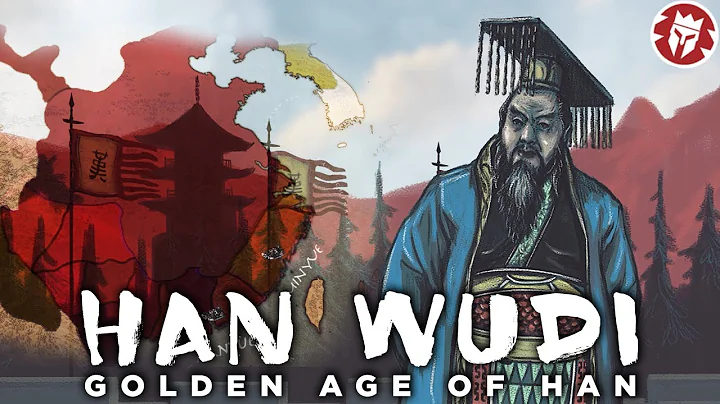Huangban Anti-Japanese Blockade
In January of the 27th year of the Republic of China (1938), the Thirteenth Division of the Japanese Central China Expeditionary Army and the Guards Division invaded north from the Mingguang and Chihe branches. At about 8 o'clock on the 31st, when we started to advance towards Linhuaiguan along the Bawang City on the south bank of the Huaihe River, we were suddenly blocked by the Northeastern Army troops stationed on the north bank, and then retreated to the south side of the embankment and crawled forward. At night, they marched into Linhuaiguan.
After the Japanese army captured Linhuai Pass, they continued to send aircraft to conduct reconnaissance and strafing operations over the north bank of the Huaihe River; at the same time, they ambush hidden troops in Yangjiawan on the south bank of the Huaihe River to spy on them. At the same time, artillery positions and heavy machine gun positions were set up in Bawangcheng, Dagudui and other highlands to peer down at Huaibei.

The Kuomintang's Yu Xuezhong, Wei Yunsong, and Zhou Zuhuang armies retreated to the north bank of the Huaihe River to station at Linhuaiguan. The 114th Division of the 51st Army (division commander Mou Zhongheng) on the north bank of the Huaihe River was located 30 kilometers away from the front line. Wangzhuang (now part of Guzhen County). Stationed in the Huangban area is the 681st Regiment of the 114th Division, with its headquarters in Duanjiazhuang. There are 1 battalion in Linbei Town, Meijiayuan East and West Village along the banks of the Huaihe River; 1 battalion in Youxiang, Huangbanqian, Houcun, and Xiaowangzhuang; and 1 battalion in Duanjiazhuang and its surrounding villages. A small artillery platoon was stationed in Yitan. The rear hospital is located in Ma Fang Camp.
html On the morning of February 2, seven to eight hundred Japanese troops from the direction of Linhuaiguan, under the cover of aircraft and artillery, forcibly crossed the Huaihe River to invade the north. The 680th Regiment and the 681st Regiment of the 114th Division fought head-on and fought fiercely for 4 hours, repelling the Japanese army. The next day, fierce exchanges of fire and bombardment were carried out across the river with the Japanese army, so that the Japanese army did not dare to easily cross the river and advance northward.The Northeast Army resolutely blocked and resisted heroically for 10 days. At 2 o'clock in the morning on February 10, the Japanese army used submunitions and sulfur incendiary bombs to violently bombard the Northeast Army positions and villages dozens of miles around Huangban, turning them into a sea of fire and causing heavy casualties to residents and livestock. At that time, more than 2,000 Japanese troops took the opportunity to attack from the east of Linhuai Pass in two directions: one way, they used rubber boats to force the crossing from Bawang City; the other way round, they stow away at Gangoukou on the other side of Guofu Nanyao. When the Japanese rubber boats reached the middle of the Huaihe River during the forced crossing, dozens of them were sunk by the Northeastern Army. No less than three to four hundred people fell into the water and died. Although the Northeastern Army suffered many casualties, the Japanese army failed to succeed several times.

The Japanese troops who were sneaking across the Ganggoukou quickly crossed the Huaihe River, passed through the groves by the river, and approached the Nanyao of Guofu. Luo Guangzhi, deputy of the 1st Battalion of the 681st Regiment, led his troops to block the attack and forced the Japanese troops to retreat. After Luo was injured, he still insisted on commanding and died heroically in the end. At this time, the Japanese army launched an attack and approached the first battalion's defense line. The two sides immediately launched a fierce hand-to-hand battle. After the Japanese army was frustrated and retreated, the Japanese army reinforced its troops and launched a second attack. The Northeastern Army was forced to retreat due to being outnumbered. After the Japanese army captured Nanyao, they then invaded Xangouwa, Xiaowangzhuang and Guofu. The Northeastern Army resisted tenaciously and engaged in fierce hand-to-hand combat with the Japanese army in Xangouwa. Most of the officers and soldiers of the first battalion were killed. The Japanese suffered heavy casualties and once again reinforced their troops. After the Japanese army captured Guofu and its surrounding villages, they burned down every house and killed everyone they encountered. Smoke, fire, and the screams of the residents being killed enveloped the entire Guofu Village.
html Around 10:00, the Japanese army attacked Huangban Village from the northeast corner of Houwangzhuang. When the Northeastern Army found that they were being attacked from behind, they retreated to the high ground of Laofengtan west of the village and fired fiercely at the Japanese troops. The two sides fought fiercely for more than two hours. After the Japanese army invaded Huangban Village, they burned down all the houses in the village and killed any residents who could not escape in time. The fire turned half the sky red, and the bodies of innocent people and Northeastern officers and soldiers were everywhere inside the house, under the bed, in the potato cellar, in the fields, and on the side of the path.
The 13th Japanese Division crossed the Huaihe River
At noon, the officers and soldiers in the Northeast were filled with indignation when they heard the screams of the people in the fire, so they bravely rushed into the village and started hand-to-hand combat with the Japanese invaders, fighting and fighting house by house and alley. The fighting resulted in many Japanese casualties. Later, the Japanese army used the earth wall as cover to shoot at the Northeastern Army. The Northeastern Army failed to attack, some fell to the ground injured, and most of the officers and soldiers died heroically. One company commander had several hand grenades wrapped around his body. He rushed into a house guarded by the Japanese troops and killed more than 10 Japanese troops. He also died heroically. The Japanese army continued to reinforce troops, and the Northeastern Army was forced to retreat to Laofentan and its highlands west of the village to block the attack. The fierce battle lasted until late at night.
html On February 11, the Northeastern Army used its 1st Battalion to counterattack the Japanese army occupying Huangban Village. The Northeastern Army rushed into the village and started another fierce hand-to-hand battle with the Japanese army. Seeing the situation, the Japanese troops hid in the house and used wall holes and windows to shoot at the Northeastern troops, stubbornly holding on. The Northeastern Army charged and fought in whole squads and platoons, and the number of soldiers was reduced sharply. Seeing that the reinforcements had not arrived, the Northeast Army retreated outside the village. At that time, the commander of the 114th Division received a call from Zhou Guanglie, the commander of the 113th Division: "Only by fighting to the death! Only by fighting all the enemies across the river can we be worthy of ourselves!"
National Army Heavy Machine Gun Group
html February 12 ( At 9 a.m. on the 13th day of the first lunar month), the 14th Division of the Northeastern Army sent 1 battalion to reinforce Huangban Village. They passed through Shangjia Lake and Xiajia Lake and then fired at Huangban Village when they arrived at Sanchong Lake. As a result, they were ambushed by the villagers. The Northeastern Army in Laofengtan, west of the village, killed many people. Reinforcements rushed into the village and started hand-to-hand combat with the Japanese troops. The bugler knelt on the ground and blew the charge horn, and the soldiers charged bravely. Several soldiers had their intestines stabbed out by the enemy, but they still persisted in fighting and killed many Japanese soldiers. At 4 o'clock in the afternoon, Japanese aircraft and artillery bombarded them indiscriminately. The Northeastern Army was ordered to withdraw to the front line of Huihe River and move closer to the 29th Army of Song Zheyuan who was stationed in Guzhen. The villages in Huangban area were subsequently lost.Huangban Anti-Japanese Blockade was part of the famous bloody battle of Huaihe River to defend Xuzhou .
This article is selected from "Wuhe County Chronicle"





















